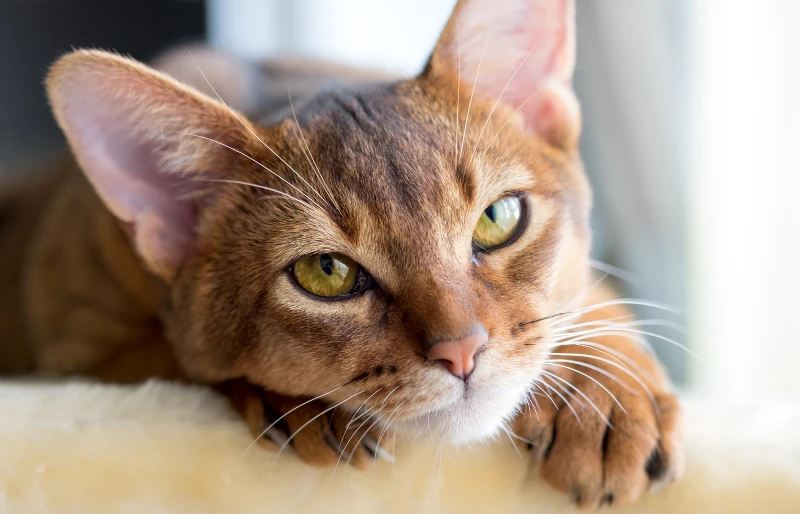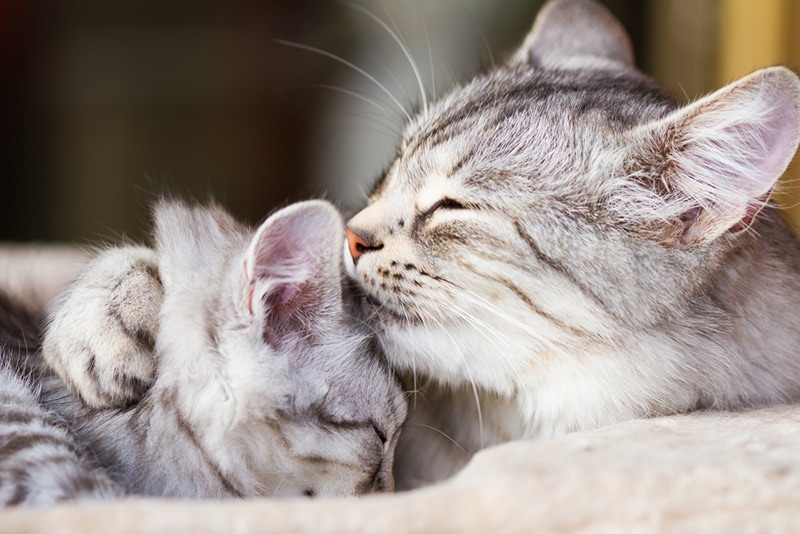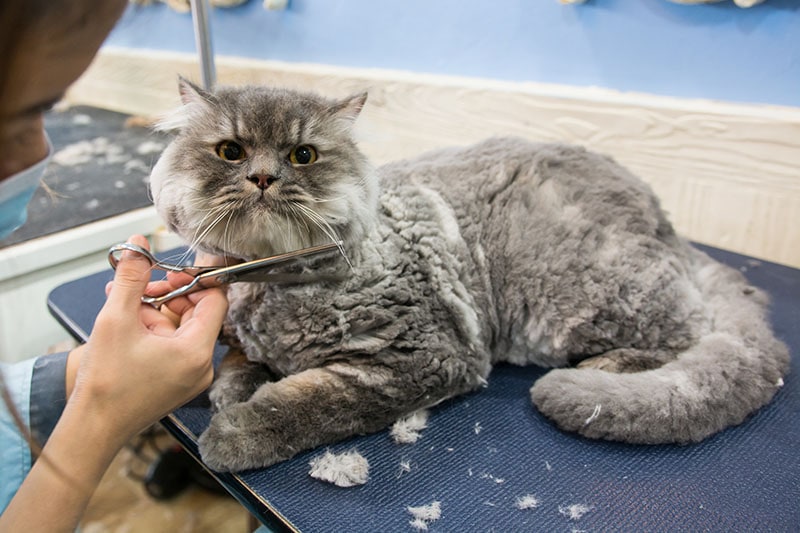Why Are My Cat’s Whiskers So Short? 7 Vet Reviewed Reasons

Updated on

Cats’ whiskers are as unique as they are. Some are short, some are long, some curl, and some are straight. If you notice that your cat’s whiskers seem a little shorter than other cats, there are several possible reasons.
Read on to learn why your cat might have short whiskers.
What Are Cat Whiskers?
Cat whiskers are highly sensitive hairs made of keratin. Also called vibrissae or tactile hair, whiskers are deeper in the cat’s skin than fur, and each follicle has much more sensitive nerve endings.
Cats typically have 24 whiskers on their muzzle—12 on each side—that are evenly distributed. They also have whiskers on their chins, above the eyes, and on the backs of the front legs. Generally, a cat’s whisker length is proportionate to the width of their body, but a cat’s whiskers won’t adjust to match a cat that’s underweight or overweight.
More than just hair, whiskers play a vital role in how your cat interprets the world around them. They’re connected to their sense of touch and help with spatial awareness, expressing their feelings, and locating prey.
The 7 Reasons Why Your Cat’s Whiskers Are So Short
1. Excessive Grooming
When kittens are first born, they have short whiskers. As they age, they learn to groom themselves, and their whiskers grow. Kittens that groom themselves excessively or are groomed excessively by their mother or littermates can end up with damaged whiskers that don’t grow as long. Kittens who experience stress or trauma may also have abnormally short whiskers.

2. Weak Whiskers
Just like the hair on people, some cats have weaker whiskers than others. If your cat has weak whiskers, they may be prone to breakage that can make them shorter than other cats. As long as your cat is healthy otherwise, this isn’t a cause for concern.
3. Naturally Short Whiskers
Some cats have naturally short or long whiskers. There’s no set “normal” length for them, especially between different breeds. If your cat has short whiskers, it could just be the way they are.

4. Fighting With Other Cats
Cats that go outside often or live with other cats can get into fights, which can lead to broken whiskers. If you just got your cat or have an outdoor cat and notice some short whiskers, they could just be broken from a brawl with another cat.
5. Trimming
Cats’ whiskers shouldn’t be trimmed, but it happens. Their whiskers could be trimmed accidentally during grooming, or a kid may have trimmed them as a prank. Some owners ask groomers to trim whiskers to give their cats a more polished appearance, but this should only be done if medically necessary.

6. Proportion
Cats’ whiskers are proportionate to their size and help them navigate the world, judge distances, and determine if they can fit into small spaces. Often, a smaller cat will have shorter whiskers than stockier breeds.
7. Underlying Health Issues
As mentioned, some cats have naturally weak whiskers, but this isn’t a concern if the cat is healthy otherwise. Some underlying health conditions can cause weak whiskers, such as stress, or endocrine disorders. Chemotherapy can also cause whiskers to fall out, making all the whiskers appear shorter.
If you suspect an underlying health condition or notice other signs of illness, make an appointment with your vet to determine the cause.

Conclusion
Cat whiskers are not one size fits all. They can be different lengths and shapes, but they’re generally proportionate to the cat to help them navigate the world. Cats can have shorter whiskers than average for many reasons, including possible medical causes that should be addressed by a vet.
Featured Image Credit: Ihar Palitanski, Shutterstock











